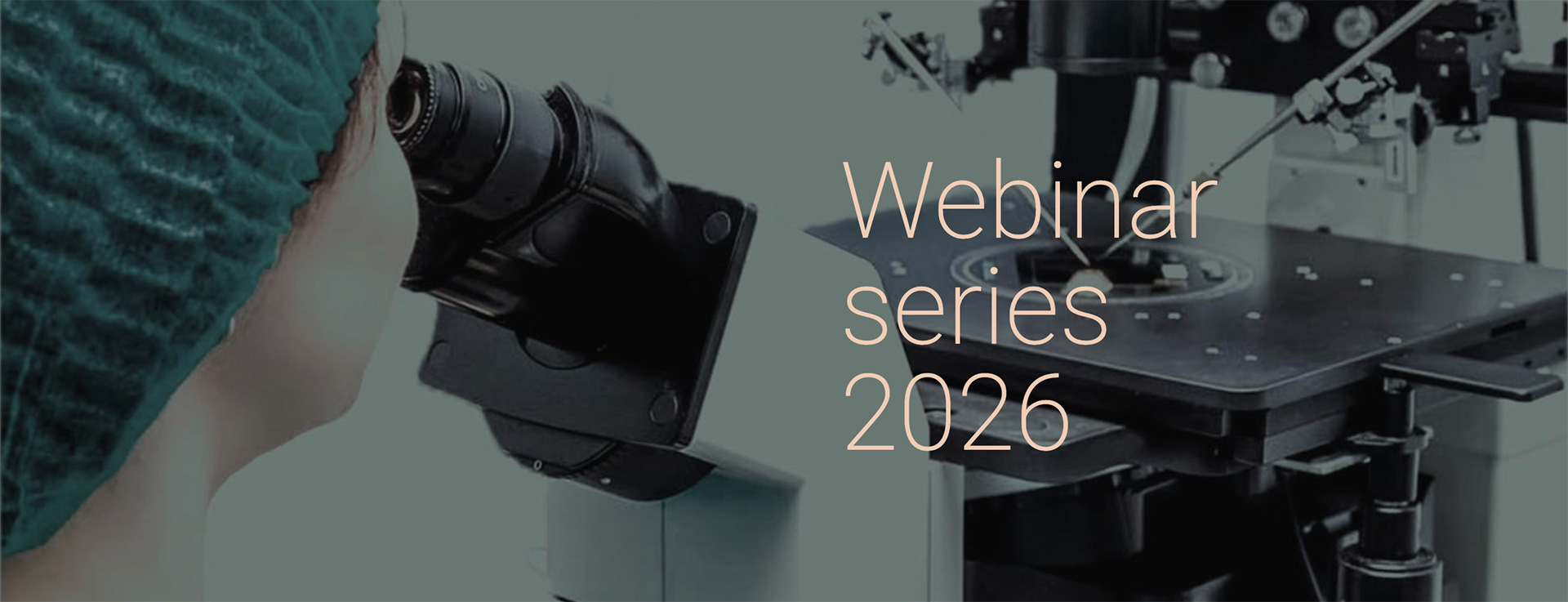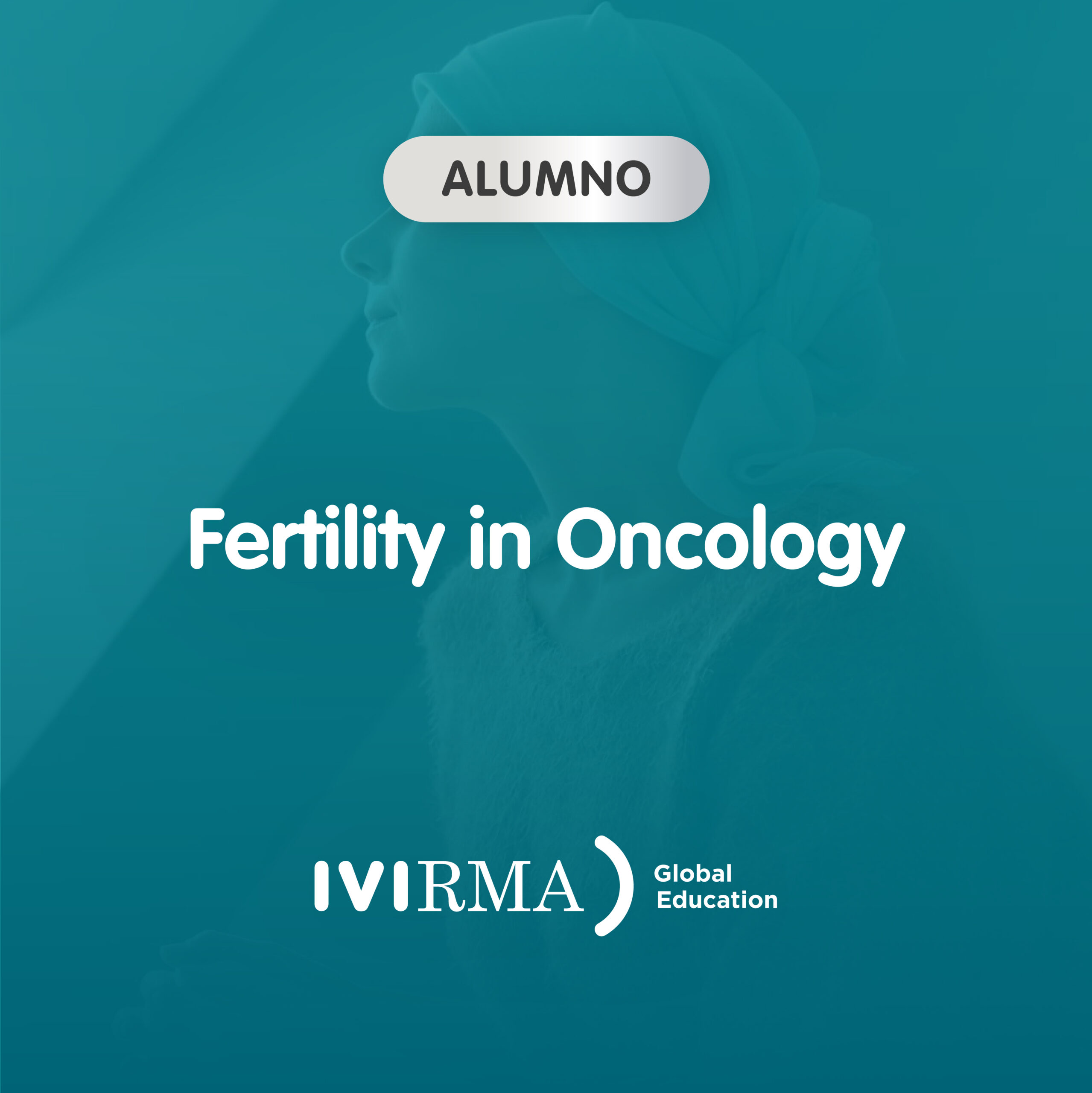Online course in Fertility in Oncology
MODALITY: Online
CENTER: IVIRMA Global Education
Online course in Fertility in Oncology
MODALITY: Online
CENTER: IVIRMA Global Education
Online course in Fertility in Oncology
AREA:
LANGUAGE: English
ProgramData

Hours:
25 theoretical

Enrollment:
350 €

Type:
Online courses

Location:
IVIRMA Campus
Description
You will learn about the most relevant aspects of fertility in cancer patients. The effects of cancer on fertility, the effects of oncological treatments on gametes, the preservation of fertility in men and women, the genetic aspects of cancer and fertility, the risks of assisted reproduction treatments, the control of pregnancy after cancer, bioethical and legal aspects. The objectives are:
- To acquire a complete and advanced training in reproductive oncology.
- To learn about the relationship between cancer and fertility in men, as well as the gonadotoxicity of the different treatments and prevention.
- To understand the diagnostic process of cancer in a woman of reproductive age, as well as its impact on her ovarian reserve.
- To understand the gonadotoxicity of different cancer treatments in women.
- To learn the genetic mechanisms of predisposition to cancer and decreased ovarian reserve.
- To learn the different techniques and protocols for preserving fertility in women and the risks of cancer in fertility treatments.
- To learn about the necessary diagnostic processes in a pregnant woman with cancer and the control of pregnancy once the disease is in remission.
- To learn the bioethical and legal aspects of fertility in oncology.
Graduates of Biomedical Areas and Health Sciences.
Academic information
Competencies
The expected learning outcomes that the student will acquire at the end of the course are:
1. Knowledge of the diagnosis and management of cancer in women of reproductive age and pregnant women.
2. Knowledge of the different fertility effects of oncological treatments.
3. Knowledge of how to apply fertility prevention procedures prior to cancer treatment and the different protocols available.
4. Understanding of the diagnosis of cancer in pregnant women and the control of pregnancy once it is in remission.
5. Knowledge of the principles of bioethics and the Spanish legal framework in relation to fertility and oncology.
Course Coordination:
José Serna López
View profileProgram
1. Fertility in oncology patients
1.1 Fertility Cancer Male
1.2 Gonadotoxicity Male
1.3 Cancer Diagnosis Female
1.4 Ovarian Reserve Impairment
1.5 Gonadotoxic Chemotherapy
1.6 Radiotherapy Fertility
1.7 Genetic Mechanisms
1.8 Hereditary Cancer
2. Prophylaxis and Obstetrics in the oncological patient
2.1 Pre-Chemotherapy Preservation
2.2 Preservation Ovarian Cortex
2.3 Fertility preservation results in the oncology patient
2.4 Ovarian Stimulation Risks
2.5 Ovarian Stimulation in Oncologic Preservation. Low Response Protocols
2.6 Fertility Treatments and Cancer Risks
2.7 Gestation control in the post-cancer patient
2.8 Oncologic diagnosis in pregnant women
3. Ethics and Psychology of the oncology patient
3.1 Bioethics of gestation in the oncology patient
3.2 Psychological aspects of fertility in oncology patients
3.3 Legislation and assisted reproduction in oncology patients
Cancellation and Refund Policy
Once the course has started, enrollment cancellation will not be possible, and no refunds will be issued under any circumstances.
Theoretical-practical courses are designed as an indivisible training unit; therefore, no refunds will be granted once the course has begun, even if the practical component has not yet started.
Course Completion
A course will only be considered successfully completed when the student has fully completed the entire program. If the course includes a practical component, it will not be deemed completed unless that component has been fully carried out.
No certificate of completion or attendance will be issued if the student has not completed all the activities included in the course program. Under no circumstances will certificates be issued for partial completion of either the theoretical or practical parts of the course.
Related courses

Online
Molecular control of follicular dominance and atresia – Casarini
Start: 17/02/2026
Webinars
Course fee:
Free

Online
Past, present and future of sperm assessment -Garrido
Start: 18/02/2026
Webinars
Course fee:
Free

Online
Embryo plasticity: cellular and molecular aspects – Coticchio / Ottolini
Start: 24/02/2026
Webinars
Course fee:
Free
25 theoretical
IVIRMA Campus
350 €
Program Data
IVIRMA Campus
This course is accredited by the European Accreditation Council for Continuing Medical Education (EACCME).Once course is completed you will be awarded with 25 ECMEC´s credits. More information in FAQ´s.
Intended for
Graduates of Biomedical Areas and Health Sciences.
Description
You will learn about the most relevant aspects of fertility in cancer patients. The effects of cancer on fertility, the effects of oncological treatments on gametes, the preservation of fertility in men and women, the genetic aspects of cancer and fertility, the risks of assisted reproduction treatments, the control of pregnancy after cancer, bioethical and legal aspects. The objectives are:
- To acquire a complete and advanced training in reproductive oncology.
- To learn about the relationship between cancer and fertility in men, as well as the gonadotoxicity of the different treatments and prevention.
- To understand the diagnostic process of cancer in a woman of reproductive age, as well as its impact on her ovarian reserve.
- To understand the gonadotoxicity of different cancer treatments in women.
- To learn the genetic mechanisms of predisposition to cancer and decreased ovarian reserve.
- To learn the different techniques and protocols for preserving fertility in women and the risks of cancer in fertility treatments.
- To learn about the necessary diagnostic processes in a pregnant woman with cancer and the control of pregnancy once the disease is in remission.
- To learn the bioethical and legal aspects of fertility in oncology.
Skills
The expected learning outcomes that the student will acquire at the end of the course are:
1. Knowledge of the diagnosis and management of cancer in women of reproductive age and pregnant women.
2. Knowledge of the different fertility effects of oncological treatments.
3. Knowledge of how to apply fertility prevention procedures prior to cancer treatment and the different protocols available.
4. Understanding of the diagnosis of cancer in pregnant women and the control of pregnancy once it is in remission.
5. Knowledge of the principles of bioethics and the Spanish legal framework in relation to fertility and oncology.
Program
1. Fertility in oncology patients
1.1 Fertility Cancer Male
1.2 Gonadotoxicity Male
1.3 Cancer Diagnosis Female
1.4 Ovarian Reserve Impairment
1.5 Gonadotoxic Chemotherapy
1.6 Radiotherapy Fertility
1.7 Genetic Mechanisms
1.8 Hereditary Cancer
2. Prophylaxis and Obstetrics in the oncological patient
2.1 Pre-Chemotherapy Preservation
2.2 Preservation Ovarian Cortex
2.3 Fertility preservation results in the oncology patient
2.4 Ovarian Stimulation Risks
2.5 Ovarian Stimulation in Oncologic Preservation. Low Response Protocols
2.6 Fertility Treatments and Cancer Risks
2.7 Gestation control in the post-cancer patient
2.8 Oncologic diagnosis in pregnant women
3. Ethics and Psychology of the oncology patient
3.1 Bioethics of gestation in the oncology patient
3.2 Psychological aspects of fertility in oncology patients
3.3 Legislation and assisted reproduction in oncology patients
Coordinators
Cancellation and Refund Policy
Once the course has started, enrollment cancellation will not be possible, and no refunds will be issued under any circumstances.
Theoretical-practical courses are designed as an indivisible training unit; therefore, no refunds will be granted once the course has begun, even if the practical component has not yet started.
Course Completion
A course will only be considered successfully completed when the student has fully completed the entire program. If the course includes a practical component, it will not be deemed completed unless that component has been fully carried out.
No certificate of completion or attendance will be issued if the student has not completed all the activities included in the course program. Under no circumstances will certificates be issued for partial completion of either the theoretical or practical parts of the course.



